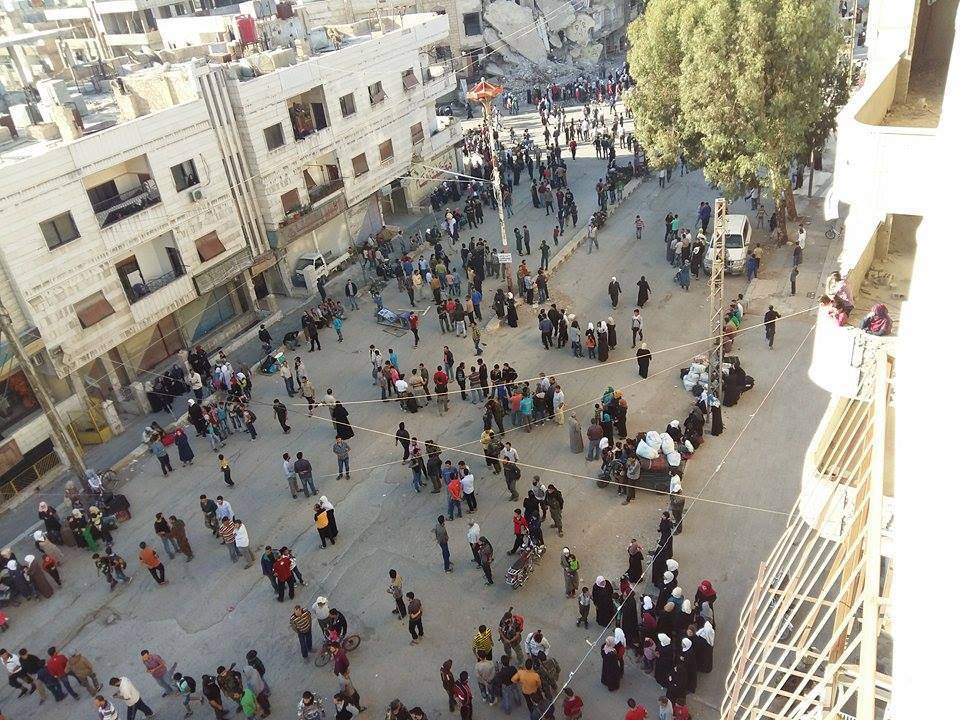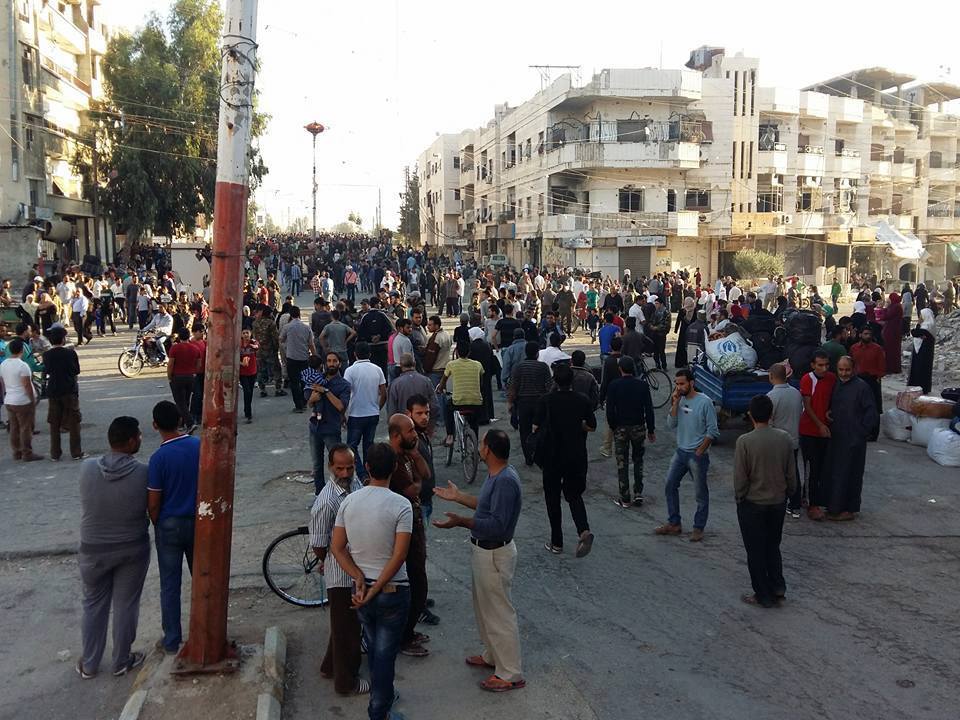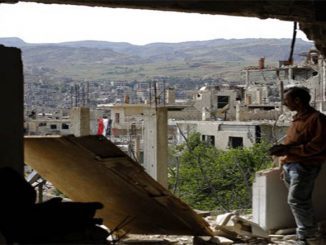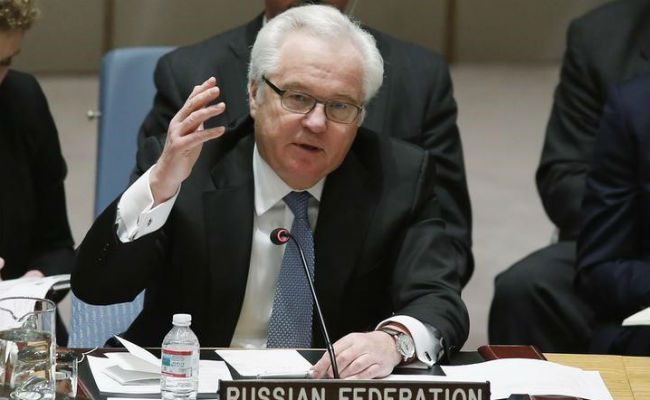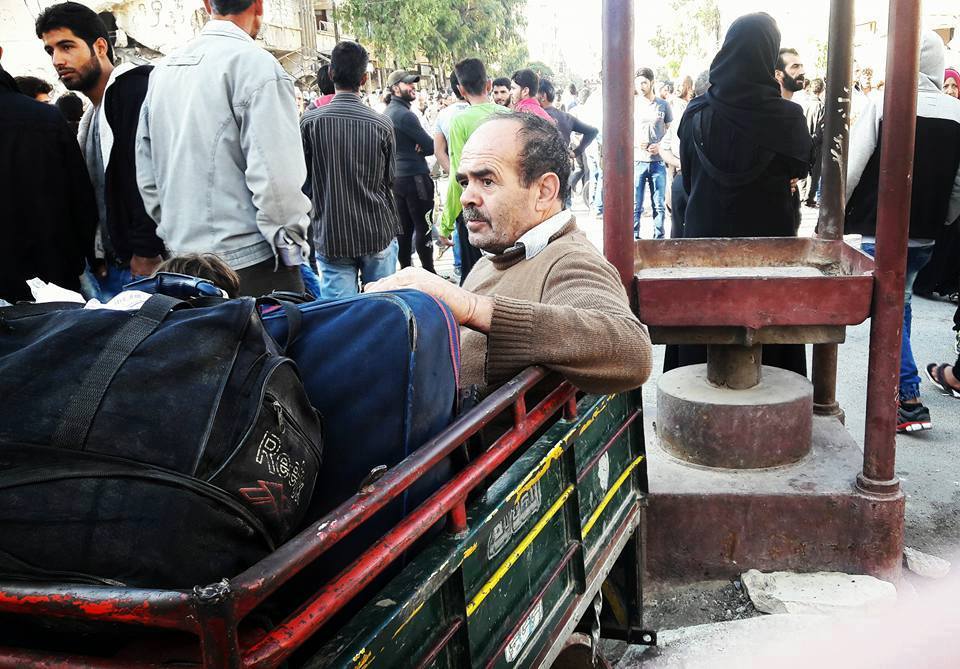
The besieged Syrian town of Mouadamiya underwent its second phase of evacuations today as hundreds of rebel fighters and their families left the area, in the latest rebel withdrawal from remaining pockets of opposition around the Syrian capital.
The area has been under siege since 2012 with children living in increasingly desperate conditions, without regular access to food, clean water and medicines.
Under an amnesty deal with the government, 1,800 people including 700 rebels left Mouadamiya for Idlib, the largest area under control of rebel group fighters.
Wednesday’s departure of rebels from Mouadamiya was not officially covered by state media and there was no announcement of the terms under which they and their families left for Idlib.
Smaller groups of people have been leaving Mouadamiya since September under agreements struck with the government, including displaced people from Daraya who had sought refuge after their own homes were threatened.
Assad has in recent months used siege and bombardment to force rebels from areas they control around Syria’s main cities, allowing them to leave with their families and light weapons and surrendering territory to the government.
In the last two months rebels pulled out of Daraya, west of Damascus, and two suburbs to the north, allowing Assad to consolidate control around the capital which his opponents came close to encircling at one stage in the five-year conflict.
Rebels still hold areas south and east of Damascus.
Rebels have accused the government of compelling them to accept such deals or face full scale assaults on besieged areas risking very high civilian casualties.
They also say the deals are designed to remove Sunni Muslims from sensitive areas in cities, a charge the government denies.
Previous agreements, including the one for neighboring Daraya in August, allowed rebels to take with them light weapons and offered civilians the option of also traveling to Idlib or moving to new accommodation in government-held areas.
Last week hundreds of rebels and their families left two towns on the northern outskirts of Damascus, Qudsiya and al-Hama under a similar agreement.
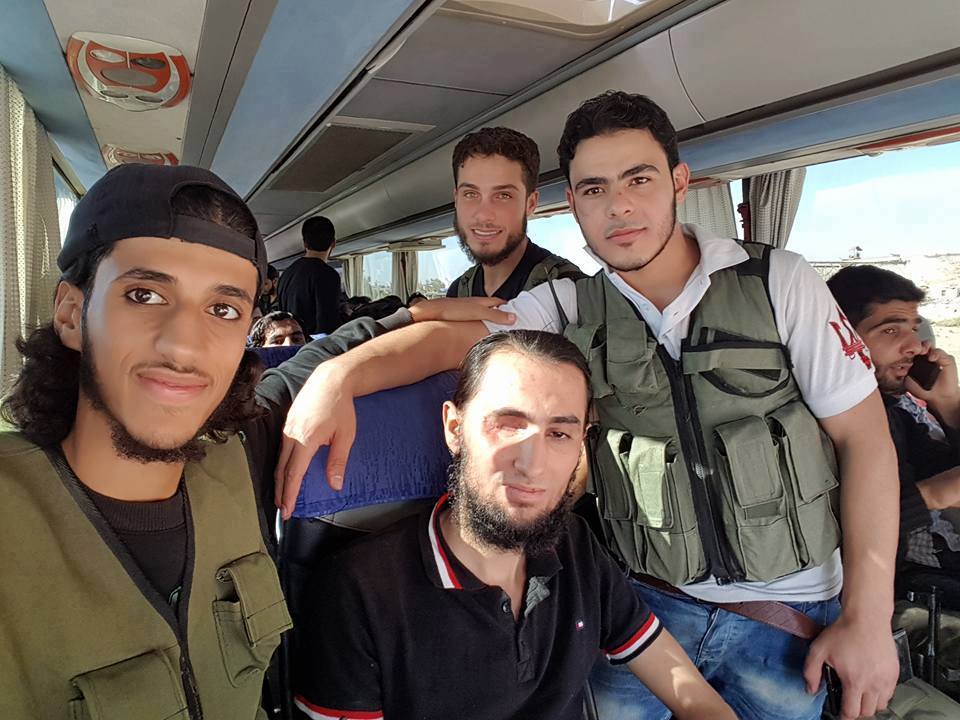
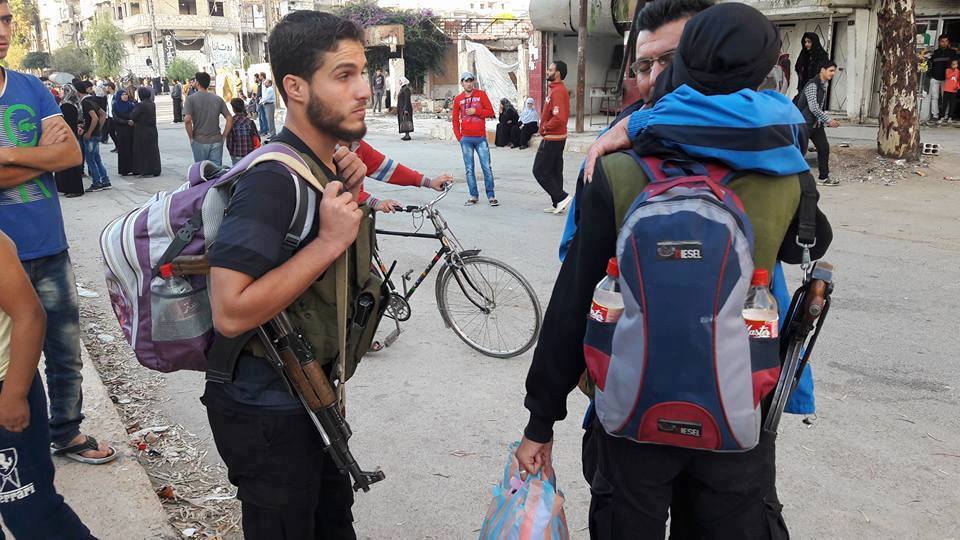
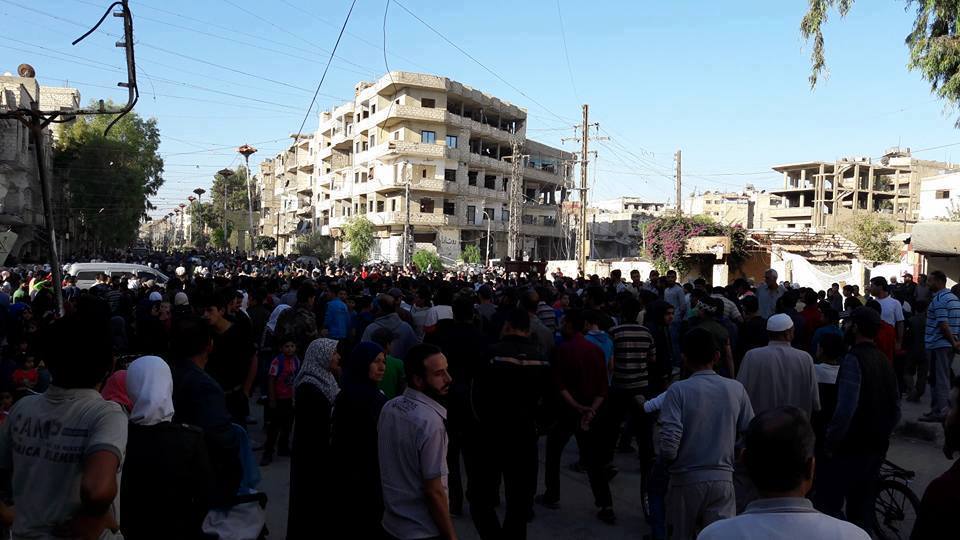
Children in urgent need of aid
Over the last four years Mouadamiya has undergone regular bombardment and artillery fire. Today (Wednesday) evacuations are already underway to designated camps in Idlib, with families of fighters expected to follow soon after.
“The children who make this journey will be leaving the only homes they have ever known, having witnessed violence and conflict for several years,” said Sonia Khush, Head of Save the Children, Syria.
“They will be hungry, weakened and in many cases sick or injured, having spent years bearing witness to the horrors of war. They must be given a safe and dignified route to Idlib and have some assurance that the situation there, will not be worse than the one they are leaving behind.”
Speaking yesterday from Mouadamiya, Imad* a dentist who lives in the area, told us of the huge toll constant attack and siege had taken on the town: “There is only one field hospital in the city that used to operate between 2012 and 2013 during the siege and armed clashes. Also, as there is no medicine available, the technicians are having to make saline solution out of distilled water. We have an entire generation of children (aged 6 six years and below) in urgent need of medicine and nutrition.”
Ali, 17, fled Mouadamiya in August and spoke to us from Lebanon: “Prices were staggering. One kilogram of rice cost 30,000 Syrian pound. Sugar cost 40,000 Syrian pounds. You could not buy anything for that amount. We had to eat grass. We drank contaminated water. Others were in hospital . In the last year, people started eating animals. Cats and dogs. Everything. Snakes. It is prohibited for us. But there was no more food to eat. So people started hunting animals to eat.There was constant shelling and airstrikes. People were dying and there was no medicine to treat them,” said Ali.
“It is hoped that access will open up to the road to Mouadamiya, but what use is it if the goods that go in are spoiled before they reach the people who need it, or if the food costs are so high that no one can afford it? That is why it is important that humanitarian aid goes in,” said Sonia Khush.
Across Syria, 18 areas are classified as besieged by the UN, and have undergone similar atrocities to those we are seeing in Aleppo today. Many children have spent years without food, water and access to medicines and it is vital that they get access to the services they need.
